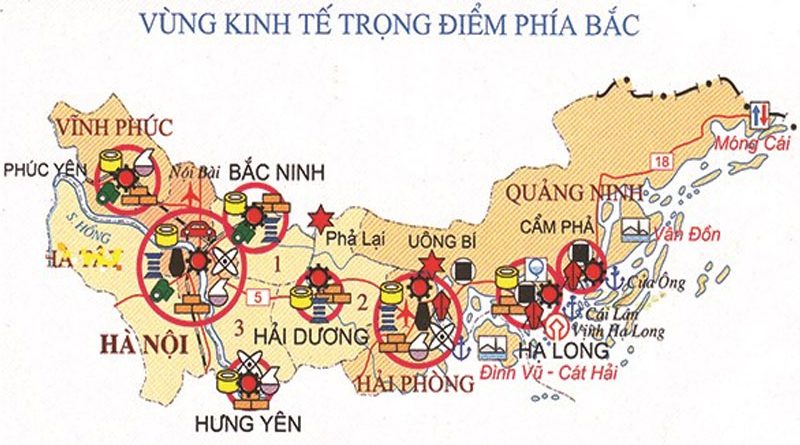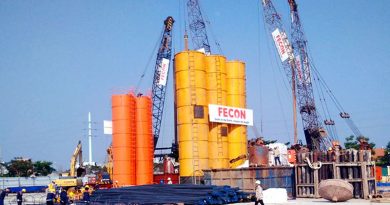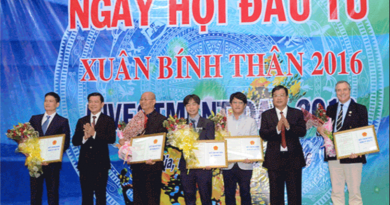Localities in northern key economic region connect for growth
The northern key economic region comprises Hanoi, Hai Phong city and the provinces of Quang Ninh, Hai Duong, Hung Yen, Bac Ninh and Vinh Phuc. It is Vietnam’s second largest economic region, accounting for 32 percent of the nation’s gross domestic product (GDP) and 32 percent of total export turnover, and contributes 31 percent to the State budget collection.
Deputy General Director of the Hanoi Trade Corporation (Hapro) Nguyen Tien Vuong said that Hapro, with rich experience in sustainable business strategy connectivity, is always looking to expand its domestic sources of goods to serve its export and domestic trade activities.
The corporation has cooperated with many businesses and units in other localities in the northern key economic region and the Red River Delta region in order to create a system of sources and develop two-way goods distribution channels, Vuong said, adding that Hapro’s distribution network has expanded to all localities in the northern key economic region.
Chairman of the Quang Ninh provincial People’s Committee Nguyen Van Thang said that connectivity between local authorities and local business associations aims to boost cooperation in production and consumption in the spirit of mutual support, thus contributing to promoting the development of the whole region’s business community.
Director of the Vietnam Chamber of Commerce and Industry – Hai Phong Chapter Phi Van Duc said that the reality shows that it is not possible to expect a breakthrough in labour productivity, investment efficiency and competitiveness of the economy as well as the business community without change. The advantage of cheap labour are falling fast due to the impacts of the Fourth Industrial Revolution.
To make the region a main force for the nation’s growth, Duc highlighted the need for each business to exert effort and cooperate with others in the region. He also suggested the State strive to create a favourable business climate and intensify disseminations of laws and policies to help enterprises avoid risks.
Trinh Minh Anh, Chief of the Inter-sectoral Steering Committee on International Economic Integration, said that participating in global and regional value chains requires enterprises to improve their goverance skills.
Traditional competition based on prices and quality must gradually shift to competition based on standards, size of orders, delivery time and distribution channels. Similarly, information and engagement with other businesses and strategic partners was just as important as technological advancement, he added.
He suggesed enterprises seek business opportunities associated with the process of international economic integration and new-generation Free Trade Agreements (FTAs).
It is essential to have an understanding of languages, cultures and customs in partner countries in order to integrate into regional and gloval value chains, he stressed, adding that firms should be able to hold legal talks with the Vietnamese Government to receive support when necessary.









